#papal bull
Explore tagged Tumblr posts
Text
You are savages, and because of our religious superiority and the papal bull of 1493⁹ we can take everything you have, including you life, land . . . and homegrown vegies.
9. In 1493 Pope Alexander VI issued a papal bull, or decree, called Inter Caetera, in which he divided the lands of the world, 'discovered and to be discovered', between the Spanish and Portuguese empires. The bull justified the taking of land from 'barbarous' nations if they didn't 'know' Jesus Christ and exhorted the spread of Christianity. Inter Caetera followed other papal orders of the 15th century that sanctioned the invasion of lands and enslavement of non-Christian peoples if they disagreed with the invaders' opinion about gods and spirituality. These papal bulls were the foundation of a 'doctrine of discovery', which allowed European nations to claim sovereignty over Indigenous peoples' lands. See 'Inter Caetera', Papal Encyclicals Online, n.d.; 'What is the Doctrine of Discovery?' Doctrine of Discovery [website], 30 July 2018; 'Conference Room Paper on the Doctrine of Discovery', 11th Session of the UN Permanent Forum on Indigenous Issues, 25 April 2012
"Country: Future Fire, Future Farming" - Bill Gammage and Bruce Pascoe
#book quotes#country#bill gammage#bruce pascoe#nonfiction#religion#christianity#90s#1490s#15th century#pope alexander vi#papal bull#inter caetera#spanish empire#portuguese empire#invasion#colonization
0 notes
Text

Religious Studies Term Of The Day: Papal Bull
0 notes
Text

I CAST PAPAL BULL! SICUT VENDITORIBUS: VADITE RETRO MALEFICI!

WHO IS RINGING THE PAPAL PALACE DOORBELLS AFTER BUSINESS HOURS NO WE DON'T WANT SPECTRUM INTERNET QUIT BOTHERING US THE POPE IS NAPPING
23 notes
·
View notes
Photo



A 14th-Century Papal Bull Discovered in Poland
A lead seal found in northwestern Poland has been identified as a rare papal bull from the reign of Pope Boniface IX (1350-1404). It was discovered in 2021 north of a former cemetery in the village of Budzistowo by metal detectorists with the PARSĘTA Exploration and Search Group. Dirt and corrosion made it difficult to identify at first. Specialists in Kraków cleaned and conserved it, revealing the inscription that marks it as the seal of Boniface IX.
Bullae were round seals, usually made of lead, that were hung on silk strings affixed to the parchments of official proclamations and documents. They were legally valid and highly recognizable signatures. Metallurgic analysis found that this one was made of pure lead derived from galenite deposits in Cyprus, Sardinia, Greece and Spain. This composition indicates the bull is original, not a later copy.
The reverse inscription reads: BONI/FATIUS/PP:VIIII. The obverse features the images of Saint Peter and Saint Paul identified by the inscription SPASPE above their heads.
In the 9th century, what is now Budzistowo was founded by Pomeranian tribes as the fortified settlement of Kołobrzeg. The settlement was on the Parsęta River 2.5 miles from its mouth on the Baltic Sea, and was rich in salt, fish, iron ore and arable land. The Polish Piast dynasty conquered the area in the 10th century, and Kołobrzeg grew into a regional center of the trade in salt and salt-cured fish.
It became a seat of a bishopric in 1000, but the area would only become thoroughly Christianized in the 12th century. St Mary’s church was built at that time. It was converted into an abbey in the 13th century when German settlers founded a new town of Kołobrzeg on the Baltic and the former Pomeranian stronghold was renamed Old Kołobrzeg. A monastery for Benedictine nuns was then built in Old Kołobrzeg.
Historians hypothesize that the bull was kept at the Benedictine monastery, based on a reference in the comprehensive history of Kołobrzeg written by the 18th century Pastor Johann Friedrich Wachsen. He recorded that in 1397, Boniface issued a letter of indulgence for the Benedictine nuns. It guaranteed a full indulgence to anyone who visited the local church.
With no relic relating to the monastery surviving to this day, [Dr Robert Dziemba, the head of the Kołobrzeg History Department,] says that if it is proved that this bull is the same one referenced by Wachsen it would be nothing short of “a historical revelation”. […]
Dziemba speculates that this particular papal bull may have been lost in the 16th century.
“After the 1534 congress in Trzebiatów introduced Lutheranism to Pomerania, the document simply lost its value,” he said. “Maybe the bull was thrown out when the duchy took control of the monastery as a result of this congress – but maybe it was lost centuries later. We will probably never know when and why it was discarded.”
The conserved bull has gone on display in the Museum of Arms in Kołobrzeg.
#A 14th-Century Papal Bull Discovered in Poland#Pope Boniface IX#lead seal#metal detecting#archeology#archeolgst#ancient artifacts#history#history news#ancient history#ancient culture#ancient civilizations#medieval history#middle ages#dark ages
94 notes
·
View notes
Text
THE ESTABLISHMENT OF CHATTEL SLAVERY BY THE CATHOLIC POPE NICHOLAS V 6/18/1452
Papal Bull Dum Diversas 18 June, 1452
Permalink
Pope Nicholas V issued the papal bull Dum Diversas on 18 June, 1452. It authorised Alfonso V of Portugal to reduce any “Saracens (Muslims) and pagans and any other unbelievers” to perpetual slavery.
This facilitated the Portuguese slave trade from West Africa.
The same pope wrote the bull Romanus Pontifex on January 5, 1455 to the same Alfonso. As a follow-up to the Dum diversas, it extended to the Catholic nations of Europe dominion over discovered lands during the Age of Discovery. Along with sanctifying the seizure of non-Christian lands, it encouraged the enslavement of native, non-Christian peoples in Africa and the New World.
“We weighing all and singular the premises with due meditation, and noting that since we had formerly by other letters of ours granted among other things free and ample faculty to the aforesaid King Alfonso – to invade, search out, capture, vanquish, and subdue all Saracens and pagans whatsoever, and other enemies of Christ wheresoever placed, and the kingdoms, dukedoms, principalities, dominions, possessions, and all movable and immovable goods whatsoever held and possessed by them and to reduce their persons to perpetual slavery, and to apply and appropriate to himself and his successors the kingdoms, dukedoms, counties, principalities, dominions, possessions, and goods, and to convert them to his and their use and profit – by having secured the said faculty, the said King Alfonso, or, by his authority, the aforesaid infante, justly and lawfully has acquired and possessed, and doth possess, these islands, lands, harbors, and seas, and they do of right belong and pertain to the said King Alfonso and his successors”.
In 1493 Alexander VI issued the bull Inter Caetera stating one Christian nation did not have the right to establish dominion over lands previously dominated by another Christian nation, thus establishing the Law of Nations. Together, the Dum Diversas, the Romanus Pontifex and the Inter Caetera came to serve as the basis and justification for the Doctrine of Discovery, the global slave-trade of the 15th and 16th centuries, and the Age of Imperialism.
Dum Diversas (Latin Original).
Papal Bulls
SUGGESTED CITATION
Indigenous Values Initiative, "Dum Diversas," Doctrine of Discovery Project (23 July 2018), https://doctrineofdiscovery.org/dum-diversas/.
#THE ESTABLISHMENT OF CHATTEL SLAVERY BY THE CATHOLIC POPE NICHOLAS V 6/18/1452#THE START OF SLAVERY#Catholic Papal Bull establishing slavery#spain#portugal#italy#popes#catholic church slavery#Doctrine of Discovery#Age of Imperialism#Dum Diversas#Catholic Slavers
16 notes
·
View notes
Text
The next seventeen letters printed are certainly genuine and were written by Henry during his courtship of Anne. They survive, oddly, in the Vatican library, something that has led to the suggestion that they were stolen from Anne by Cardinal Campeggio: this would account for the fact that his bags were searched when he reached Calais on his return to Rome.
Anne Boleyn: In Her Own Words & the Words of Those Who Knew Her (Norton, Elizabeth)
#oh; hm...#i always though they were looking for the . whatever the name of it was. but campeggio evidently showed#both wolsey and henry a papal bull for the annulment#just to show that it was not a waste of time and that he had been authorized to pronounce while in england (me when i lie)#im sure it was burned before he traveled back to rome tho#*i mean he had been#officially. but it was retracted. sooo.....#elizabeth norton
1 note
·
View note
Text

The Papal Bull Inter Caetera of May 4, 1493 with a new translation and introduction by Sebastian Modrow and Melissa Smith
1 note
·
View note
Text
New Post has been published on Books by Caroline Miller
New Post has been published on https://www.booksbycarolinemiller.com/musings/harry-potter-v-doctrine-of-discovery/
Harry Potter v. Doctrine of Discovery

I threw a DVD of “Harry Potter and the Chamber of Secrets” into my player last night. I needed a touch of innocence to block out the television news. Hard to accept but the real world had grown more fantastical, dark, and insane, than makebelieve. In the episode I selected, Neville Longbottom proves to be a hero. Knowing his friends Harry, Hermione, and Ron intend to break curfew and dishonor Gryffindor, he blocks their escape. “I’ll fight you,” he says shakily, his small fists rolled into balls to prove he means what he says. In the real world, Nikki Halley could have used Longbottom’s courage. She accused Donald Trump of being unhinged, but like the rest of her peers in the Republican Party, she endorsed him. Fear rather than admiration was the reason. Each of them preferred to suffer the reign of an avowed tyrant and his band of Christian Nationalists rather than risk their careers. To take a stand against allies and friends is difficult as studies show. In turbulent times, only the brave are willing to sacrifice themselves for the greater good. Of the 7 Republicans who voted to impeach Donald Trump, for example, only 2 survived the next election. The rest faded away though the nation owes them a debt. Though they may not know it, Trump and his band of White Christian Nationalists can trace their sense of a right to govern to the Doctrine of Discovery. Written in 1493, this Papal Bull was an answer to a question that troubled Christopher Columbus. After returning from the New World with a plan to set out again, he wondered how he should treat the inhabitants of these faraway lands. The Holy See’s answer was unequivocal. Columbus owed heathens nothing except to convert them to the faith. Chief Justice John Marshall answered the same question concerning American Indian rights in Johnson v. McIntosh (1823) When white Christian farmers settled on lands belonging to the Oneida Nation, the Indians sued. Marshall relied on the Doctrine of Discover in his response. He defined the Indians as “occupiers” of the land, but assigned ownership to the white Christians. It may surprise some to learn this prejudice persisted in American law as late as 2005. That was the year Ruth Bader Ginsberg decided a case on the same Papal grounds even though Pope Francis had rescinded the Bull in 2003. PPRI, a nonprofit research group that focuses on the intersection of religion, culture, and politics, published a poll regarding the Doctrine of Discovery in 2022. The question they asked was, “Do you agree or disagree that America was designed by God to be a promised land for European Christians?” Thirty percent of those who answered agreed with the statement. Republicans form the nucleus of Christianity in this country so a number of those who replied were probably Christian conservatives. In any case, this nostalgia for injustices of the past comes at a time of demographic change in the United States. “Self-identified Republicans today are 70 percent white and Christian in a country that is only 42% white and Christian.” (“Finding the Hidden Roots of White Supremacy,” by Robert P. Jones, FFRF, May 2024, pg. 13.) Understandably, in 2020, when a defeated Trump claimed the election was rigged, the Christian right believed him and their response grew to a full-throated rage that culminated in an assault upon our nation’s Capitol. The rebellion was quelled but the fury remained, erupting sporadically in violence or threats of violence. During this period of turbulence, the Supreme Court seems to be administering law and order with an uneven hand. Many who participated in the Capito riot have gone to jail. On the other hand, the High Court has made it increasingly difficult to prosecute verbal assault. In Counterman v. Colorado, for example, the Supreme Court ruled that violent speech has First Amendment protection and is prosecutable only if the perpetrator has “some subjective understanding of the threatening nature of his statements.” Political threats come from all sides of the philosophical spectrum, of course, but they are increasing in number and the range of those targeted is widening. In 2021, the National League of Cities published a poll that shows public servants have come under heavy assault. The political climate has become so toxic that a former head of the Republican Party told 60 Minutes he went along with a scheme to overturn the 2020 election because he was “scared to death.” Likewise, former Georgia Governor, Roy Barnes admitted he refused to assist district attorney Farni Willis in her prosecution of Donald Trump because “I wasn’t going to live with bodyguards for the rest of my life.” History informs us that defending our democracy takes courage. In a speech given at Harvard University, Supreme Court Justice Sotomayor reminded us of this fact when she praised the jurists who ended segregation in our public schools. (Brown v. Board of Education) “They were brave men who believed in the power of law to form that more perfect union, and I believe it,” she said. We all need to believe it for we have stumbled upon a time when the assault upon our democracy is coming not only from external enemies but from our fellow citizens. I refer to those who defend the idea that some of us are occupiers and others are owners. In an earlier blog, I predicted a blue wave was coming. The prediction wasn’t magical thinking. That wave will arrive come November. In a free land, ordinary people like Neville Longbottom will always rise to defend their country in a time of crisis.
#2021 Naational League of Cities poll#Brown v. Board of Ediucation#changing US demographics#Christian nationalism#Christopher Columbus#Counterman v. Colorado#Doctrine of Discovery#Donald Trump#Govenor Roy Barnes#Jan. 6 Capitol assault#Justice Sotomayor#Neville Longbottom#Nikki Haley#Papal Bull of 1493#Pope Francis#PPRI 2022 survey#Robert P. Jones
0 notes
Text

In an effort to give himself a breather after more than a decade ministering to his flock, Pope Francis announced Friday that he had excommunicated all of the world’s Catholics so he could have a quiet weekend alone. “It’s just been so long since I could take a few days to myself without worrying about shepherding the souls of all the planet’s true believers,” said the Supreme Pontiff, who after issuing the papal bull De studio relaxationis—which bars all 1.39 billion of his followers from receiving sacraments or participating in official church services—poured himself a glass of sacramental wine and stretched out on a sofa in the Apostolic Palace. Full Story
1K notes
·
View notes
Photo
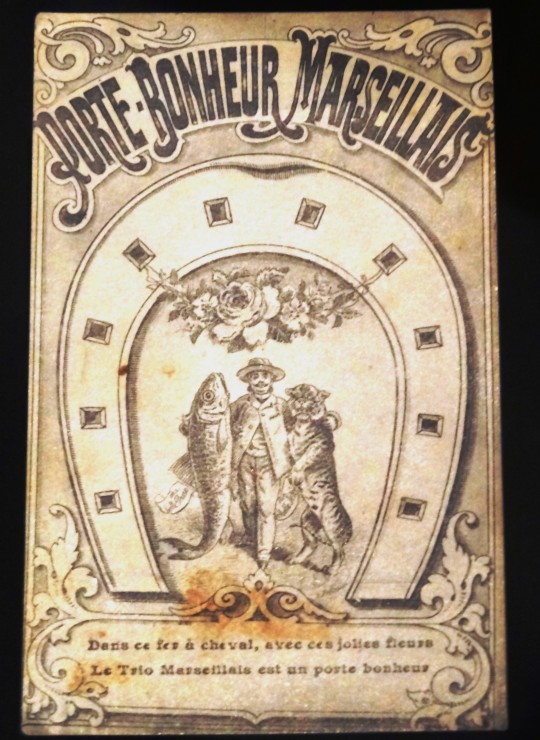
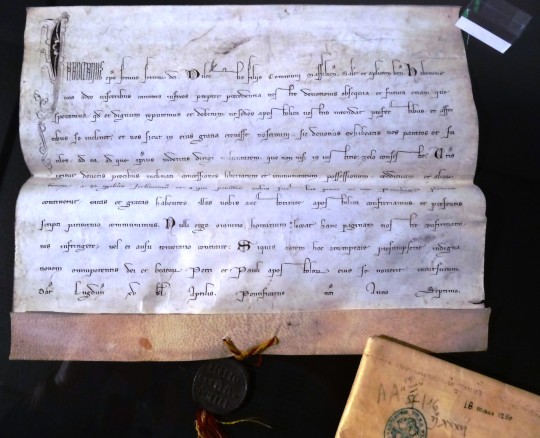
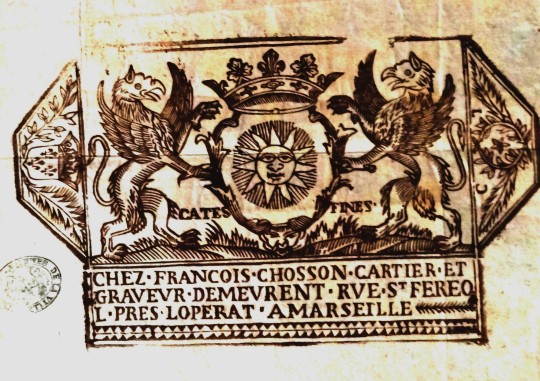
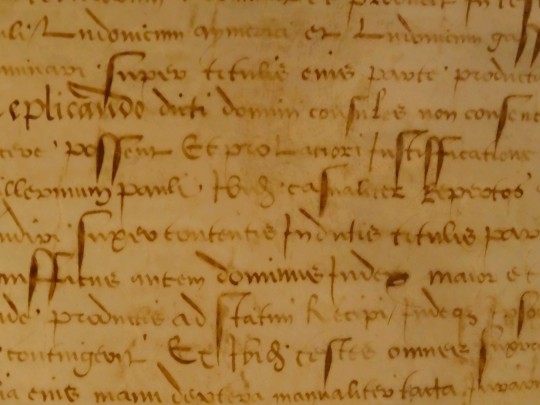
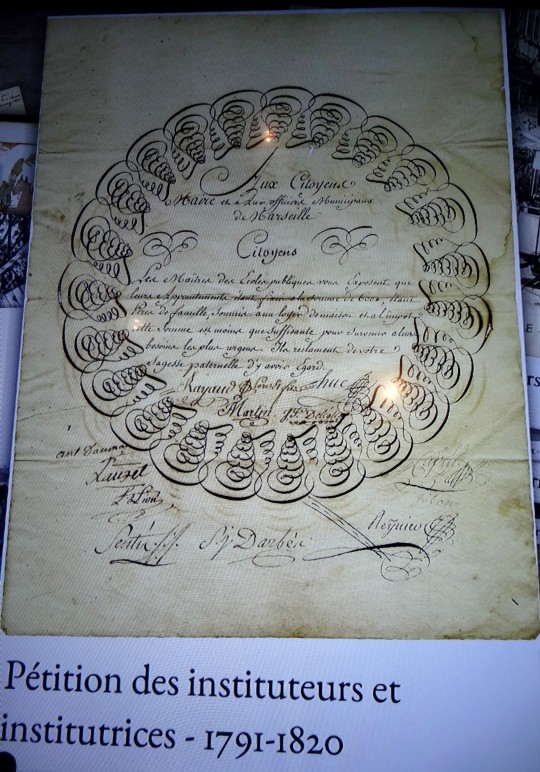
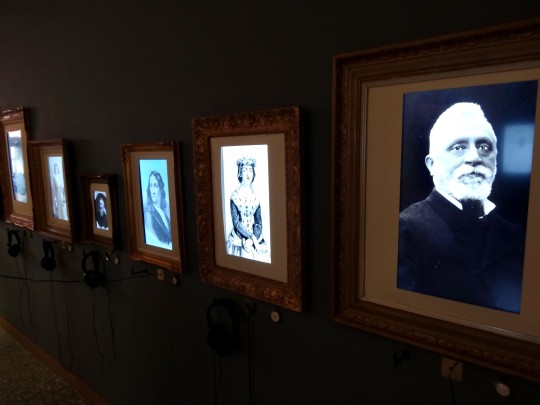
Nouveau retour à mon projet de présenter la plupart de mes 55500 photos (et des brouettes). Plus trop loin du présent....
Marseille : Archives Municipales, expo "Futurs Antérieurs”
- Carte postale début XXe s. ce “Trio marseillais” assez étrange (poisson, tigre et monsieur moustachu !) est censé porter bonheur !
- Bulle d'Innocent IV - 1250
- enveloppe de cartes à jouer - 1750
- Sentence de Philippe de Hocberg
- Pétition des Instituteurs (ça avait de la gueule à l’époque !!)
- vue des lieux
#souvenirs#marseille#archives municipales#archives municipales de marseille#expo#futurs antérieurs#cart epostale#bulle papale#innocent IV#carterie#cartes à jouer#sentence#sentence de philippe de hocberg#philippe de hocberg#pétition#françois chosson#porte-bonheur#tigre#poisson#moustache
1 note
·
View note
Text
Before you get all riled up, take a sec to digest this key quote:
Unnervingly rapidly, our culture has become a fan-based landscape that the rest of us are merely living in. Our entertainments may be cancelled prematurely through an adverse fan reaction, and we may endure largely misogynist crusades such as Gamergate or Comicsgate from those who think “gate” means “conspiracy”, and that Nixon’s disgrace was predicated on a plot involving water, but this is hardly the full extent to which fan attitudes have toxified the world surrounding us, most obviously in our politics.
He's right and he should say it. MAGA is at its heart a spectacularly toxic fandom. People treat matters of state like they're sports games, and they treat their entertainments like they're papal bulls.
Moore can certainly be a giant crank when he wants to, but when he's right, the man is right.
("Alan Moore knows the score", indeed.)
#can't wait for my asks to fill up with bullshit#not like I don't have enough going on in my life but what the hell#alan moore#culture war
76 notes
·
View notes
Text










The Episcopal Archive and Library of Vic, Central Catalonia.
This archive contains the documentation generated by the Diocese of Vic for over 1000 years, as well as some other non-religious collections about its area that the Diocese has gathered throughout the centuries. It includes, among others, the document of consecration for Vic's cathedral, 5 papyrus Papal bulls (out of the 23 that exist in the world), documents of the trials against supposed witches, and many others that tell the history of Catalonia in the last 12 centuries.
The building also contains the Episcopal Library, which has about 200 incunables (books printed in the very earliest stages of printing in Europe, before the year 1500) and more than 300 manuscripts, the earliest of which is a parchment scroll dated in the year 882.
Photos by Victòria Rovira Casanovas published in La Mira. Information from Arxiu i Biblioteca Episcopal de Vic and La Mira.
#vic#catalunya#història#fotografia#books#archive#books and libraries#books & libraries#bookblr#historical#catalonia#dark academia#library#reading#medieval#early modern#europe#culture#travel
107 notes
·
View notes
Text
Someone needs to ban Apollo from dodgeball, or at least deactivate his tumblr. You could make a chronology of the last 15 years and all major political and societal catartrophies, and all of them would have screen shots of tumblr users cursed with the gift of prophecy.
Either that, or the history of antisemitism is so fucking repetitive and predictable that saying "And then everyone hated the Jews again" could be posted at any point since the invention of writing and it would fit right in with any place on the timeline.
Jesus Fucking Christ (pun intended), yall just can NOT catch a fucking break.
If you look up the list of Papal Bulls (official declarations by the Catholif Pope that set forth binding legal and religious precedent for all Catholics and Catholic governments) it seems like a fucking quarter of them are just additions and retractions to "Sicut Judaeis" ("Thus To The Jews").
A thousand fucking years of successive popes waffling about whether or not Jews are actually humans who deserve rights. Turns out the Nazis weren't the first ones to make Jews wear stars on their clothes to separate them from the rest of the populace, the Catholic Church set that like 800 fucking years before Hitler.
I was raised Catholic long ago, and at no fucking point in my Catholic education was any of this made apparent to me. I was raised on the idea of Supersessionism, that Jews were just proto-Christians who hadn't gotten the memo yet, and it took another half of my life for someone to point out how insulting that concept is.
I feel like I am at the same point I was when the history of racism was explained to me in 6th grade when we read The Narrative of The Life of Frederick Douglas in class (yes, it took till 6th grade for my Catholic school to explain racism to me, great book btw). By which I mean I am fucking furious, and the more that is explained to me by my jewish friends and the more I stuff I pick up on that I was previously oblivious to, the more mad I get. And seeing how humanitarian calls for aid to Gaza are being hijacked by calls for a new Global Intifada, it repulses me. What repulses me more is that if this war had happened only about 4 or 5 years ago, I would be the exact same kind of fake progressive spouting antisemitism that boil my blood now.
Its a band wagon. Leftist discourse has become a game. There are winners and losers. Losers get canceled, and winners get their 15 minutes of clout for successfully bullying the loser into deleting their comment/post/blog/life. No one is allowed to not have a fully formed opinion. You either pick one side from opposite extremes, or you are considered "complicit" for not picking a side until you have more information. I mentioned to a friend that I don't think half these people even thought about Israel and Palestine once before the #FreeGaza tag started trending. My friend @avian-misdemeanors put it best when they said you have to prove you are a True Believer or you'll be the first to "Get the Wall" when the "Revolution" comes like its some kind of leftist Rapture.
I don't even want to scroll up to see how long I've been ranting for. It's half past midnight, I'm sick, and I have work in the morning.
Yall have my solidarity, and stay safe out there folks.
Sweet Judas, what a fucking mess...
I'm just gonna come out and say the controversial thing that's been weighing on me for months now.
I am visibly Trans and I experience transphobia on a regular basis. I have never once been misgendered or made to feel uncomfortable by a member of my Jewish community.
I am visibly Jewish and I experience anti-Judaism on a regular basis. I am consistently devalued, shunned, and othered by Queer people in Queer spaces and Queer communities because of my Jewish identity.
LGBTQIA+ people need to do better to accommodate religious minorities. Anti-Jewish sentiment due to Queer-based religious trauma isn't any better, kinder, or more moral than anti-Jewish sentiment due to white supremacy.
#israel#palestine#gaza#antisemitism#3000 years of antisemites needing an actual fucking hobby#catholicism#judaism#jews#catholics#I'm not Catholic any more#for the record#but that was probably obvious by my venemous disdain for the papacy#“papal infallibility” my fucking ass#“list of papal bulls” has to be one of the most depressing wiki entries I've ever fucking read
19K notes
·
View notes
Text
In a brilliant essay, “Decolonial Theology and Changing the Global Church” on the Berkley Forum, Dr. Debora Tonelli says that “At the end of official colonialism, religion has often been the space in which colonized people have fought to build their new identity.” With regard to Indigenous nations and peoples, I would suggest a slight modification of that concept: “...the religion of the invaders has often been the space in which dominated and colonized peoples, those who have survived the intergenerational onslaught, have fought to build a new identity under an imposed system of domination.
My inspiration for that modification comes from a number of Vatican papal decrees issued by various popes during the fifteenth century (1436, 1452, 1454, 1455, 1456, 1481, 1493, 1506, and 1514). The Latin language of those documents is quite useful. It provides insight into the church-state coalition that served as an engine, so to speak, for establishing a system of domination over distant non-Christian lands during the so-called Age of Discovery.
Are the Papal Bulls Political Documents of Christian Empire?
While present-day Catholic Church experts tend to say that the language of those papal bulls is not part of official Church teaching, this is beside the point. Years ago, in 1992, Bishop (now Archbishop) Charles J. Chaput told me that the papal bulls I was referring to were “political documents.” I think he meant that they are not based on and do not express official church teachings.
I understand his use of the phrase “political documents” to mean that those papal decrees expressed the political intention of the popes of the Holy See, an intention to extend the system of domination of Western Christendom to distant lands in a spirit of “Christian empire” (Christiani imperii, in the Latin language of the bulls). This was to be accomplished by “reducing the barbarous nations” (ac barbarae nationes deprimantur) to subjection or domination.
The more egregious political language of those documents, going back to the Dum Diversas of 1452, expressed the directive to “invade, capture, vanquish, and subdue” non-Christians; “reduce their persons to perpetual slavery”; “take away all their possessions and property”; and “convert” the land, meaning to unlawfully or wrongfully take away that which belongs to another.
That kind of language provides us with the insight into what happens when free and independent nations and peoples have been invaded and deadly colonial patterns have been brutally imposed on them for generations, in the name of “the state” and Jesus. A resulting system of domination will then become “the space” within which Dr. Tonelli says that colonized people have fought to build “a new identity,” and within which they will perhaps “struggle for independence.”
However, this “new” identity will be a “colonized” rather than a liberated one. The colonized will then be working toward a form of independence under and subject to the imposed Christian European system of domination. Curiously, Dr. Tonelli’s account does not envision dominated (colonized) nations and peoples working to restore their original free and independent existence, by liberating themselves from the imposed system of Christian empire and domination.
Dominorum Christianorum: Christian Dominators
During a 2016 meeting with the Pontifical Council for Justice and Peace, I said to Archbishop Silvano Tomasi, “With respect, I believe there is much of your own history you don’t know. Let me ask you, have you ever actually read the papal bulls” from the fifteenth century? He replied, “No, I must confess.” The point being that most Catholics and even some of the highest Church officials have never studied the Latin language of those Church documents, and certainly not from an Original Nations or Indigenous peoples’ perspective.
A book published by the U.S. Library of Congress, just a few years ago, contains replicas of the papal bull of September 26, 1493, the Dudum Siquidem. That line is taken from the middle of the papal bull dated May 3, 1493, “que sub dominio actuali temporali aliquorum dominorum Christianorum constitute non essent.” This refers to lands discovered and to be discovered in the future “that were not established under the domination of any Christian dominators.”
Whether the intent of domination expressed by that language is part of “official Church teachings” is irrelevant in my view. What is relevant is that, throughout the world, the present-day context and conditions experienced by “Indigenous” nations and peoples is an outgrowth of the patterns of domination and dehumanization expressed in those many documents issued centuries ago by the Holy See.
In State of the World’s Indigenous People (2009), published by the Economic and Social Council of the United Nations, there is section titled “The Concept of Indigenous Peoples.” After saying that no specific definition has been “adopted by any United Nations-system body,” an example of a “working definition” is provided. It refers to “Indigenous communities, peoples and nations” which have “a historical continuity with pre-invasion and pre-colonial societies that developed on their territories.” Terms such as “pre-invasion” and “pre-colonial” suggests a post-invasion and post-colonial period, or, in other words, after the claim of a right of domination has been asserted and maintained.
Furthermore, the international working definition says that Indigenous peoples “consider themselves distinct from other sectors of the societies now prevailing on those territories, or parts of them,” which means “now dominating.” It also says that Indigenous communities, peoples, and nations “form at present non-dominant sectors of society...” The opposite of the non-dominant is the dominant, or the dominating states, which are the non-Indigenous. Despite these clear connections, the UN working definition never uses the word domination. Nor does it focus on the fact that the phrase “Indigenous peoples” is accurately interpreted as meaning “dominated peoples.”
Here’s one thing the Vatican papal bulls are able to teach us: Over a period of more than five centuries, a system of domination (the dominio of the dominorum Christianorum) was globalized by means of the language patterns found in the Vatican papal bulls of the fifteenth century.
That system now serves as the linguistic and behavioral “space” in which colonized Indigenous peoples, without being aware of it, have been working to build an identity as dominated peoples within the framework of the United Nations, which is an organization of “states” of domination. The question arises: How do we end the global system of domination and its devastating effects on the planet?
#What Fifteenth-Century Papal Bulls Can Teach Us About Indigenous Identity#white lies#catholic popes#who started slavery#catholic church#catholic pope nicholas v started slavery#nicholas v#dum diversas#Africans stolen for white lies#Africans enslaved for the catholics#Reparations#Reparations are due
3 notes
·
View notes
Text
It should come as no surprise that the most important contribution to the Infield Fly Rule made in the Middle Ages was authored by its most imposing figure, St. Thomas Aquinas. He might never have seen a baseball game were it not for an invitation he received from Pope Urban IV, who was traveling to Paris to root for the visiting team, the Papal Bulls. Aquinas was a quick study, and by the top of the sixth he had learned the rules of baseball. Or so he thought. The batter for the Bulls lifted a pop fly, and the umpire immediately yelled “Infield fly! Yer out!” Aquinas had counted on a sure double play. From his diary we learn that he said, “Urban, what manner of abomination is this?” “Tom, my son,” the Pope replied, “it is a rare rule of baseball. Aristotle speaks of it.”
Anthony D'Amato, The Contribution of the Infield Fly Rule to Western Civilization (and Vice Versa), 100 Nw. U. L. Rev. 189, 195 (2006)
166 notes
·
View notes
Text
For #CoffeeWithACodex on December 19, Curator Dot Porter will bring out Ms. Codex 105, a collection of papal bulls and documents concerning privileges granted to the Order of Teutonic Knights. It was copied in Germany around 1450.
Register here:
Coffee With A Codex is an informal lunch or coffee time to meet virtually with Kislak curators and talk about one of the manuscripts from Penn's collections. Each week we'll feature a different manuscript and the expertise of one of our curators. Everyone is welcome to attend.
39 notes
·
View notes